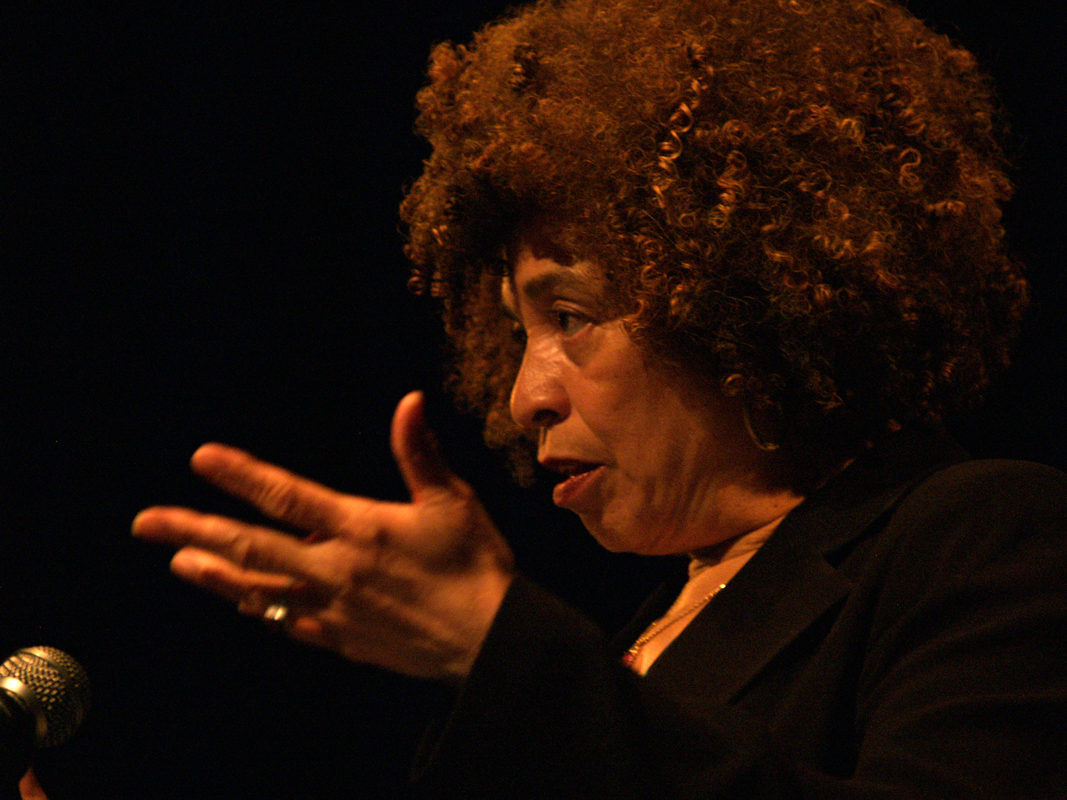On Thursday night at Cubberley Auditorium, long-time civil rights activist Angela Davis emphasized the importance of intersectionality in academia and activism. Davis also advised students to continue fighting for social justice.
The event was the first of two commemorating the 50th anniversary of 1968, a year marked by global struggle and protest. At the outset of the talk, Davis addressed other significant events of 1968, including the Orangeburg Massacre, the assassination of Martin Luther King Jr. and the election of Shirley Chisholm, the first African-American Congresswoman.
Hosted by the Division of Literature, Cultures and Languages (DLCL), Davis’s lecture also included a question-and-answer session moderated by William Robertson Coe, Professor of English Michelle Elam and Gabriella I. Johnson ’17. Davis also fielded audience questions.
Elam first asked Davis about the success of contemporary activist movements, such as the Women’s March and Black Lives Matter, in the face of modern-day nationalism. Davis noted the continual resurfacing of nationalistic tendencies, despite 20th-century challenges to the phenomenon.
“The nation is the most applicable form of human community,” Davis said. “There is no racial justice in a single nation or place. Our struggles are always planetary struggles.”
Davis also noted the importance of diversity in intellectual spaces — within and outside formal educational institutions.
“Intellectuals are absolutely essential to building movements that bring social transformation,” Davis said. “Both academic intellectuals and those who do not have professional training.”
She added that change can only begin once academically-trained intellectuals recognize that universities are not the only source of legitimate knowledge and that many gain valuable experience through work in the real world.
When discussing the different sources that can contribute to intellectual development in society, Davis emphasized the roles that gender and race play in the issue.
“When black women rise up, the whole world rises with them,” said Davis, referencing a quote from American author Anna J. Cooper. “By working to end violence against black trans women, we work to end gender violence at large.”
Davis also criticized the prison industrial complex, a term she herself popularized to refer to the investment of American corporations in the criminal justice system. Features of the prison industrial complex include surveillance and mass incarceration. Johnson noted that Davis is often criticized for calling for abolition of prisons rather than just prison reform.
“Abolition is not so much about tearing down prison walls, although it is also about that,” Davis said. “It’s about imagining the kind of world we would need in order for us not to rely on institutions of violence and repression to provide security.”
She added that the prison industrial complex also perpetuates sexual violence. To this point, she cited strip-searching and cavity searching, processes by which people must remove all of their clothes and have their body cavities searched for illegal possessions.
Students reported that they were satisfied by the conversational nature of Davis’ talk and inspired by her enduring activism. Throughout the talk, the audience frequently snapped in agreement with her remarks.
“It was really amazing to see that intergenerational conversation,” said Amelia Stillwell, a Ph.D. candidate at the Graduate School of Business. “I really appreciate that members of the community were invited as well.”
Attendee Yaqing Yang ’21 said she was particularly struck by Davis’s presence onstage.
“She invited a part of us that’s incredibly human to speak with her,” Yang said. “She doesn’t consider it a sacrifice to practice activism. She considers it a voluntary choice. Hopefully I’m able to take that lesson with me and say a lot of the choices I make from here on are voluntary.”
Celine Foster ’21 also praised the atmosphere of the event, as well as Davis’ experience in the field of social activism.
“It was a really inclusive space, and Angela Davis spoke with such dignity,” Foster said. “She’s been through so much, and she brought that knowledge in a very polished intellectual way but also with roughness; it looked like reality.”
Davis finished by calling on the audience to carry the torch of activism forward.
“The work that we do determines the way tomorrow will look,” she said.
The second event commemorating the 50th anniversary of 1968 will be an all-day conference held Friday at the Terrace Room in Margaret Jacks Hall — Building 460 — from 9:15 a.m. to 6:30 p.m.
Contact Michael Espinosa at mesp2021 ‘at’ stanford.edu.
